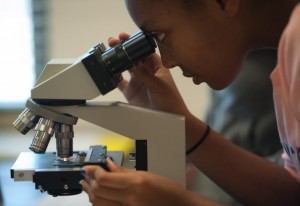“As a child, I had a very empathic relationship with everything around me; that quality was always there… if it hadn’t been a move to the US, today I would be a doctor in my country, without any question.”
Once I arrived in Cotui in ’62, um, I was put in public school. My mother’s family couldn’t really afford paying for private school, so I went to public school there with all the kids in that town. You got ahead if you wanted to study; if you didn’t you sort of coasted. People didn’t really have an interest in education in this town—it was a farming environment. Families preferred to keep their kids at home, helping with the farm rather than sending them to school. So there was a lot of mockery of me when I arrived at that town by my cousins because they could see my education; they could see how I behave, how I spoke and what I did and they would mock that because they hadn’t seen that; they haven’t seen a peer behave in such a cultured way, so they would mock me.
But despite all that I ended up completing junior high school and the first year of high school in Cotui. I remember learning algebra, geography, biology, history, math—the basic subjects. And I remember English too.  We were not an English-speaking country, but the country was really trying then in the 60s to introduce English classes. It was so basic, you could almost laugh at it; in fact, we just laughed ourselves through class—we never really learned anything. I came to New York City not really knowing anything about the language. Or American history. We did not study American history; we studied Dominican history and a little bit of European history, but I don’t remember a thing about American history. So when I got to this country and got put in the 9th grade, I didn’t really know American history. I had to teach myself to get caught up.
We were not an English-speaking country, but the country was really trying then in the 60s to introduce English classes. It was so basic, you could almost laugh at it; in fact, we just laughed ourselves through class—we never really learned anything. I came to New York City not really knowing anything about the language. Or American history. We did not study American history; we studied Dominican history and a little bit of European history, but I don’t remember a thing about American history. So when I got to this country and got put in the 9th grade, I didn’t really know American history. I had to teach myself to get caught up.
When I was in high school in Cotui, I was interested in medicine because the education system tracks you into it early on, but it was also because of service to others. As a child, I had a very empathic relationship with everything around me; that quality was always there—I recall it as a child. It was interest in serving others, and then it was fascination. I  was fascinated by science and by how it explained things, how it explained function, how it explained existence. All of those things fascinated me. So I would be very excited to see experiments in biology and microbiology as I studied more; if it hadn’t been a move to the US, today I would be a doctor in my country, without any question, without any question.
was fascinated by science and by how it explained things, how it explained function, how it explained existence. All of those things fascinated me. So I would be very excited to see experiments in biology and microbiology as I studied more; if it hadn’t been a move to the US, today I would be a doctor in my country, without any question, without any question.
I was with a peer group of five or six of other girls who were really focused on education. We naturally came together. The rest of them were fooling around. Right now we still stay in touch with each other. I was focused on medicine; I had a friend who was focused on chemistry—two chemists and one lawyer came of out that group. They were very focused on education. We were very serious about it; the rest of the kids were just joking around, fooling around, playing. So by the time I get to New York City, I had some values about education that were instilled in me, not necessarily by my mother. My mother had a third grade education. She barely knows how to write and has very limited social graces. Again, she made a very good choice by sending me to have an early education with the nuns. That was very important. And I could see that she made a very good choice because she knew that she could not impart what she wanted to see in me for the future. She couldn’t impart it. She didn’t have the skills for that.
